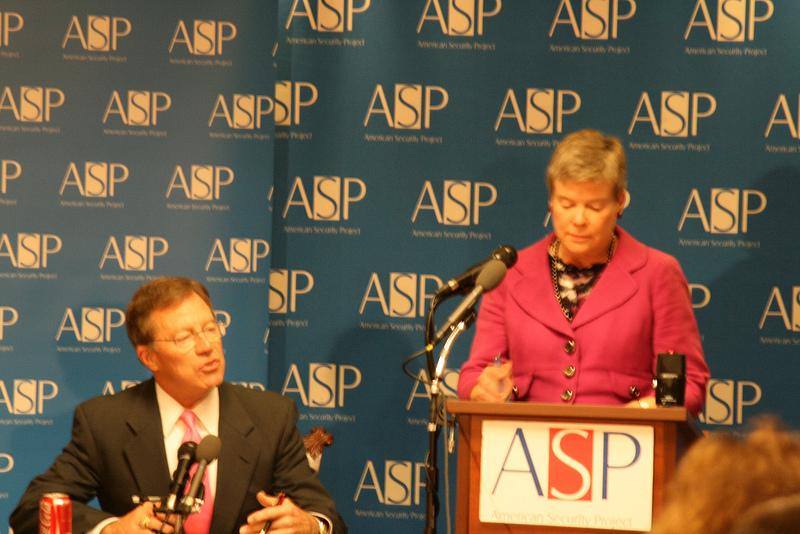
Undersecretary Rose Gottemoeller: “CTBT ratification is in U.S. national security interests.”
Podcast: Play in new window | Download
Subscribe: Apple Podcasts | RSS
Click here to listen to this event.
 The last U.S. nuclear test took place September 26, 1992 – over twenty years ago. Since then, the United States has ensured the safety and security of nuclear arsenal in a variety of ways, including a vigorous stockpile stewardship program, life extension programs, and advanced simulation and computing.
The last U.S. nuclear test took place September 26, 1992 – over twenty years ago. Since then, the United States has ensured the safety and security of nuclear arsenal in a variety of ways, including a vigorous stockpile stewardship program, life extension programs, and advanced simulation and computing.
Acting Undersecretary of State for Arms Control and International Security Rose Gottemoeller recently joined the American Security Project for an event marking the twentieth anniversary of the last U.S. nuclear test.
As explained in a recent ASP Fact Sheet, CTBT ratification would enhance U.S. national security interests by deterring potential proliferators and maintaining a vigorous verification and monitoring regime, while allowing the U.S. to maintain a robust nuclear force.
Undersecretary Gottemoeller highlighted “the Treaty’s robust verification regime, which supplements our own state-of-the-art capabilities for monitoring, our national technical means.”
These verification techniques “will severely challenge any state trying to conduct militarily significant explosive nuclear tests that escape detection,” Undersecretary Gottemoeller noted, going on to describe “the added burden that this treaty, when in force, will place on a country attempting to cheat. They will face onsite inspections; they will face the full force of the CTBT verification regime.”
“It really, really ups the level of uncertainty for any country that is considering cheating,” the Undersecretary added.
While making the case for U.S. ratification, Undersecretary Gottemoeller also emphasized the role of other nations in CTBT entry into force.
“Don’t sit on your hands and wait for the United States,” Undersecretary Gottemoeller said. “When the United States ratifies the Comprehensive Test Ban Treaty, it will drive progress forward…The United States lends special momentum, but we’re not the only ones. All states, as they participate in ratification efforts, drive this process forward.”
For the U.S., CTBT ratification “will be a difficult task on many levels,” Undersecretary Gottemoeller said, adding that the administration is “nonetheless committed to moving this Treaty forward, since the national security of the United States, and all states, will be enhanced when CTBT enters into force.”
Acting Undersecretary Gottemoeller, who was recently nominated to officially assume the post, has considerable experience in treaty ratification and implementation.
In addition to acting as chief U.S. negotiator of the New Strategic Arms Reduction Treaty (New START) with Russia, she has presided over the “positive and pragmatic” New START implementation process, which has greatly contributed to strategic stability between the Cold War superpowers.
For more on the Comprehensive Test Ban Treaty, see ASP’s CTBT factsheet.
To listen to the audio of the event, click here
You can also watch the event below:






[…] you can watch and listen to the event here […]
[…] fact sheet on the Comprehensive Test Ban Treaty and event with Acting Underscretary of State Rose Gottemoeller were highlighted in an article John Bennett, […]
[…] event with Acting Undersecretary of State for Arms Control and International Security Rose Gottemoeller […]
[…] ASP hosted an event on the CTBT with Undersecretary of State for Arms Control and International Security Rose Gottemoeller. ASP […]